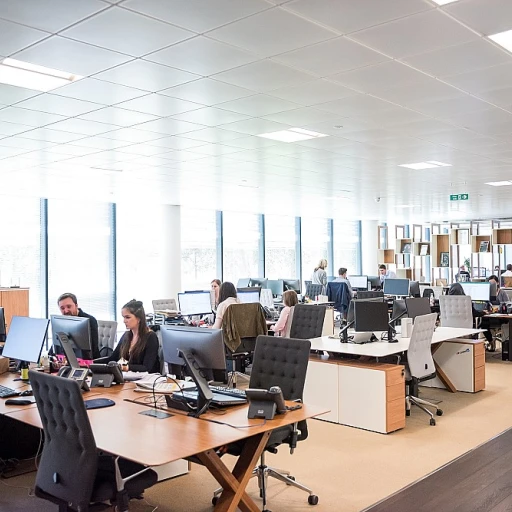
Philippe, could you tell us what motivated you to co-found your company, and how your experience in the digital transformation of the retail sector influenced that decision?
I co-founded 4jours.work with a simple conviction: we need to fundamentally question the way we work.
The structure of our workweek hasn’t been seriously reconsidered in over 100 years, even though work itself has drastically changed — automation, digitalization, upskilling… everything has evolved except how we organize our time.
My experience in digital transformation within retail confirmed this. At Aramisauto and La Ruche Qui Dit Oui!, we proved that double-digit growth could be achieved through data and processes. But no one ever questioned whether five days of work per week was still the right framework. The result? Burned-out teams and costly turnover.
On a personal level, becoming a father and leading a social startup supported by Google.org made me experience the constant pressure to perform. The four-day workweek seemed like a logical next step — a way to rethink how we organize work to create more value in less time.
Today, we support companies through this transition, with 24 different four-day week formats already identified — clear proof that there’s no one-size-fits-all solution, but tailored models for each business. Our goal: to combine attractiveness, productivity, and quality of life.
How would you describe the impact of digital transformation on the future of work, particularly in the retail sector? Do you see fundamental shifts in traditional business models?
Digital transformation has completely redefined the role of physical stores. Consumers now research online — when they walk into a store, it's to make a purchase, not to explore. This is true across sectors, from automotive to fashion. Some brands, especially in apparel, are struggling because they failed to adapt.
Ten years ago, we still talked about “pure players” versus traditional retailers. That distinction is now gone. Digital tools are everywhere in stores, from sales tablets to interactive screens that let customers purchase without needing assistance.
Looking ahead, AI, hyper-personalization, and augmented reality will amplify this trend. Stores will become experiential spaces, almost like a stage, where people come for expert advice or to complete a purchase already prepared online. The real challenge won’t be having large teams, but rather teams capable of delivering high-value experiences in less time.
With the rapid evolution of technologies, how do you see the balance between work automation and the essential role of human skills in tomorrow’s workplace?
Automation only makes sense if it frees up human time instead of intensifying workloads. For too long, we’ve used technology to “do more” instead of better organizing time and value creation.
The balance will rely on two key levers:
Automate everything that is repetitive or low-value — AI, hyper-personalization, and augmented reality will revolutionize logistics, customer service, and inventory management.
Focus humans on what they do best: the 5 Cs — creativity, communication, collaboration, critical thinking, and compassion. These are the skills that turn a simple transaction into a premium customer experience and enable the resolution of complex problems.
Studies on the four-day week already show this: when work is reorganized meaningfully, hourly productivity increases and team engagement soars. The real challenge won’t be technological, but cultural — daring to use productivity gains to free up time and make work more sustainable.
For retail companies still hesitant to fully embrace digital transformation, what advice would you give to help them overcome their reluctance and leverage digital technologies?
Acknowledge the reality of attention. Your customers spend over 7 hours a day on their mobile phones — that’s where attention lives, even in-store. Ignoring that channel means losing the battle before it begins.
Start small, but measure everything. A pilot (sales tablets, online appointment booking, self-checkout) is enough to demonstrate tangible ROI and win over skeptics.
Make the experience seamless and useful. Digital isn’t about flashy tech — it should simplify the purchase process and enrich the experience, not create friction.
Have you seen any concrete examples in the retail sector where digitalization not only improved operations but also fundamentally transformed the customer experience?
Yes, several examples clearly illustrate how digital is transforming both operations and customer experience:
La Ruche Qui Dit Oui!: Local producers adopted digital tools via simple mobile solutions. The result? Better product visibility, seamless orders, and direct customer relationships — no middlemen.
Aramisauto: Digitalization enabled productivity three times higher than traditional car dealerships — with faster, broader vehicle selection and better-qualified leads, it transformed how people buy cars.
Decathlon: Digital tools combine real-time personalized advice with ultra-fast logistics. Sales reps use tech to recommend the right products instantly, and online orders can be picked up in-store within hours — boosting satisfaction and loyalty.
Lastly, digital allows for precise measurement of customer satisfaction and identification of friction points, enabling continuous improvement of the experience. We’re no longer just optimizing operations — we’re designing a seamless, truly customer-centric buying journey.
As a seasoned leader in digital transformation, what personal and professional skills do you consider crucial to navigate this ever-evolving environment successfully?
Leaders must combine adaptability, tech literacy, and human-centric management. The best ones will:
Embrace experimentation while staying aligned with purpose.
Cultivate the 5 Cs (creativity, collaboration, communication, critical thinking, and cultural awareness).
Understand that leadership today is not about control, but orchestration — guiding change, managing ambiguity, and fostering trust.
Digital isn’t just about tools; it’s about mindset. The ability to continually learn and help others evolve will be decisive.
What key challenges and opportunities do you foresee in the next 5 to 10 years as digitalization continues to reshape the world of work — especially for co-founders and business leaders?
Digitalization isn’t just changing our tools — it’s redefining what “work” means.
For over a century, we haven’t fundamentally questioned the standardized organization of labor, even as its nature has drastically evolved. Automation has replaced entire categories of manual tasks, value has become intangible, and we now live in a data and service economy. Yet we still operate with Taylorist logic.
In the next five to ten years, the combination of AI, advanced automation, and hyper-personalized services will push businesses to rethink their models faster than ever. Some roles will disappear, but many will be profoundly transformed. The real challenge isn’t job loss — it’s the ability to upskill and reskill on a massive scale.
Successful leaders will be those who can orchestrate this transformation: building ongoing reskilling pathways, developing critical human skills — the 5 Cs I mentioned earlier — and embracing time management that’s more flexible and value-driven.
That’s the essence of our work at 4jours.work. The four-day week isn’t an end in itself — it’s a lever to rethink productivity, organization, and the role of work in our lives. It forces companies to focus on what truly creates value, to automate wisely, and to invest in uniquely human capabilities.
This movement goes far beyond adjusting schedules — it lays the groundwork for a model where we produce better, not more, and where we finally accept that collective effectiveness should be measured not by time spent, but by outcomes delivered.

-full.webp)











